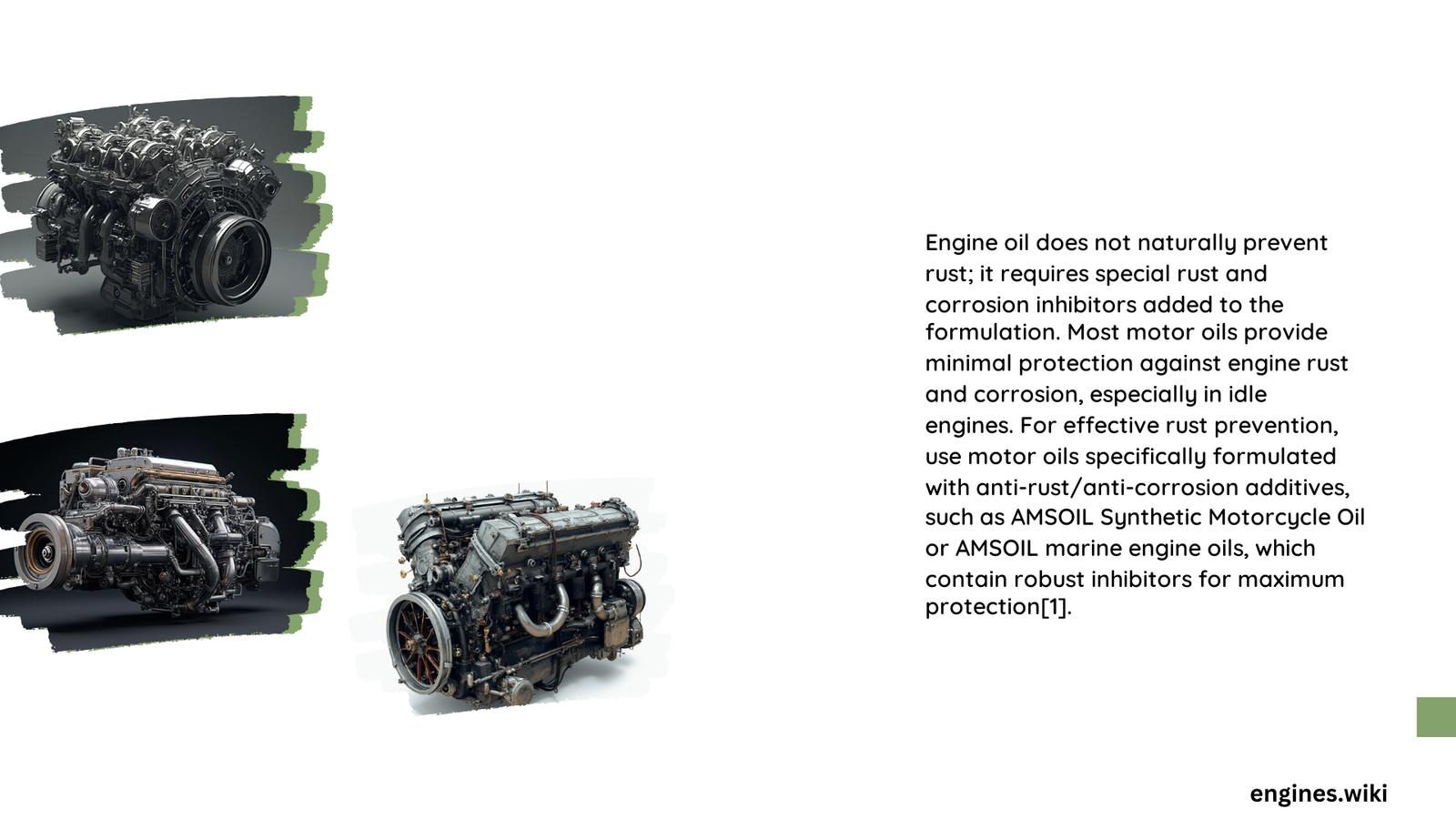Engine oil serves as a critical defense mechanism against rust, utilizing sophisticated chemical compounds and protective strategies that create a robust barrier between metal surfaces and corrosive environmental elements. Modern engine oils are engineered with specialized additives that neutralize acids, displace moisture, and form protective films on metal components, effectively mitigating the risk of rust formation and preserving the structural integrity of engine parts.
What Makes Engine Oil an Effective Rust Preventative?
How Do Corrosion Inhibitors Work?
Engine oils contain specialized chemical compounds designed to combat rust through multiple mechanisms:
Key Corrosion Prevention Components
- Dialkylphenyl Dithiophosphoric Acid: Neutralizes acidic compounds
- Molybdenum Compounds: Creates protective molecular layers
- Borates: Enhances metal surface protection
| Additive Type | Rust Prevention Mechanism | Effectiveness Rating |
|---|---|---|
| Corrosion Inhibitors | Chemical barrier formation | High |
| Metal Deactivators | Non-ferrous metal protection | Medium-High |
| Alkaline Additives | Acid neutralization | High |
What Specific Protective Mechanisms Prevent Rust?
Engine oil prevents rust through several sophisticated strategies:
- Moisture Displacement
- Forms hydrophobic protective layers
- Blocks water contact with metal surfaces
-
Reduces oxidation potential
-
Chemical Barrier Creation
- Adsorption-chemisorption film development
- Molecular bonding with metal surfaces
- Continuous protective coating
Why Regular Oil Maintenance Matters?
Maintaining rust prevention capabilities requires consistent attention:
- Oil Change Intervals: Critical for preserving protective additives
- Base Number Monitoring: Indicates remaining corrosion resistance
- Viscosity Checks: Ensures continued protective performance
Can Different Engine Environments Impact Rust Prevention?
Environmental factors significantly influence rust prevention:
- High Humidity Regions: Require more robust additive concentrations
- Temperature Variations: Affect molecular barrier effectiveness
- Operating Conditions: Determine oil’s long-term protective capabilities
What Are the Quantifiable Benefits of Rust Prevention?
Research demonstrates measurable advantages:
- Reduced Metal Wear: Up to 40% decrease in corrosive deterioration
- Extended Component Lifespan: Significant improvement in engine durability
- Maintenance Cost Reduction: Lower repair and replacement expenses
Expert Recommendations for Maximum Protection
Professional strategies to enhance rust prevention:
- Use high-quality, manufacturer-recommended engine oils
- Perform regular oil analysis
- Monitor oil condition during routine maintenance
- Choose oils with advanced anti-corrosion additives
Conclusion

Engine oil is not just a lubricant but a sophisticated rust prevention system that protects critical engine components through advanced chemical technologies. By understanding its protective mechanisms, vehicle owners can significantly extend their engine’s operational life and performance.
